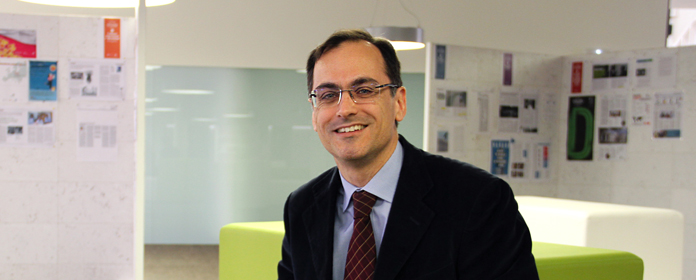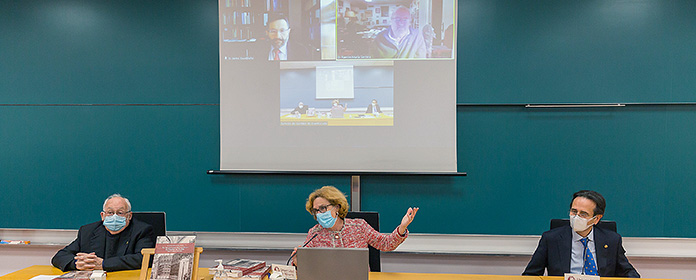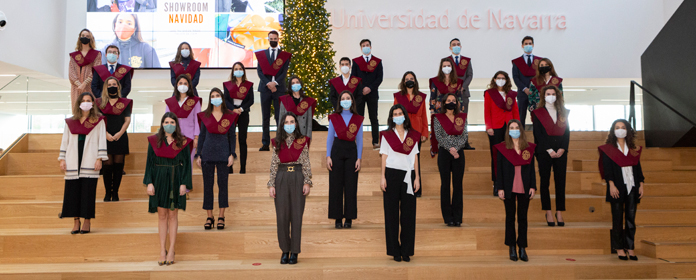"The context in which adolescents develop more heavily influences character problems than exposure to new technologies"
The director of InterMedia Consulting gave a seminar to the School of Education and Psychology and ICS

FOTO: Natalia Rouzaut
"The context in which adolescents develop more heavily influences character problems than exposure to new technologies," or so Reynaldo Rivera argued at the University of Navarra. Rivera is the general director of InterMedia Consulting and a professor at Austral University (Argentina). Interpersonal relationships are very important for education in values because they greatly impact young people’s lifestyle. In his opinion, the influence of social networks is contingent on the quality of said relationships: "They can be helpful as long as you are able to make contact with positive networks."
The specialist made these remarks as part of a seminar organized by the School of Education and Psychology and the Institute for Culture and Society (ICS) at the University of Navarra, within the framework of the “Researching and promoting character education in Latin American secondary schools” project, which receives funding from the Templeton World Charity Foundation.
Rivera referred to his consulting group’s research, which has been studying character education and collecting data from schools in Latin America for nine years. During that period, more than 28,000 adolescents were interviewed. With the empirical data obtained through Big Data, he guides schools in making decisions about how to organize character education.
Education in virtues vs. ideological educationHis center’s studies have shown that young people cultivate virtues such as empathy to a lesser extent. In his view, this is related to the example that adults give through lifestyles that exhibit constant changes, which hinders stability in personal relationships. The specialist emphasizes that the family should be the first teacher in character education. "The problem is when family is basically nonexistent, it is dysfunctional, it undergoes a very big cultural shift or the parents work ten hours a day to survive," he lamented. In this sense, he emphasized that education in virtues requires a broader network: "You cannot depend on the family alone because adolescents must be able to relate outside of it."
On this point, he highlighted the importance of educational centers, which in his opinion should support character education" as something intrinsic to its identity, not just as an add-on." Carrying this out properly requires a "long-term plan" and orienting the curricula according to each course. "In our research, not only have we seen differences between schools, but also between courses and classes," he noted.
The researcher stresses the importance of distinguishing between education in virtues and focusing on ideological content, noting that while the former is always positive, the latter seeks to manipulate. "In many countries, governments impose programs to manipulate education in order to impose an ideology," he said. In the face of this, Rivera proposes developing critical thinking, "allowing for dialogue to be established between people who do not think alike."




